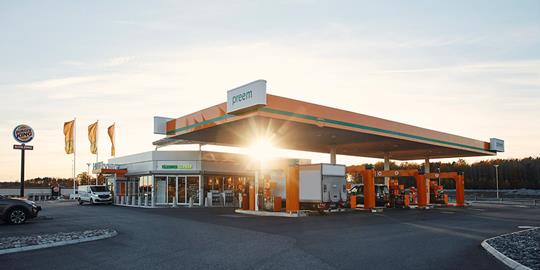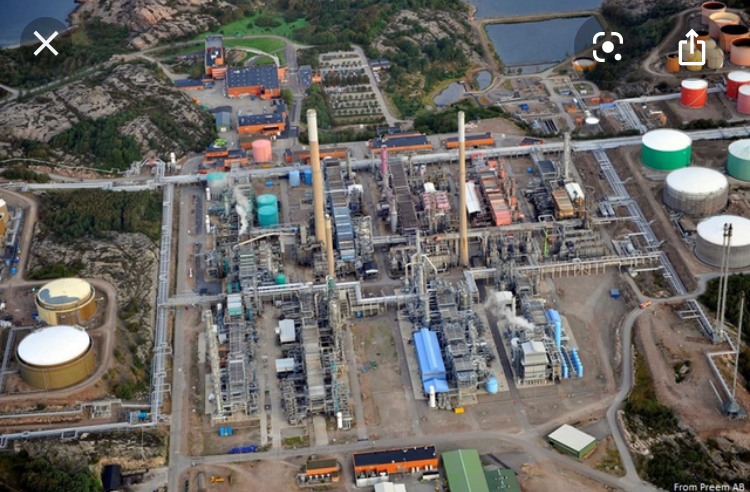
pic: Preem.se
Last August, in this post, it was discussed how the government was going to be the deciding party regarding whether or not Preem, Sweden’s largest fuel company, would be allowed to build an even bigger oil refinery on the west coast – and oh, by the way, become Sweden’s biggest – numero uno by far – source of CO2 emissions. For a refresher on this issue, check out the post.
Meanwhile, since that decision in August, Preem made some changes to its bid, reducing the size of its expansion and by that, the amount of CO2 emissions. According to DN, today’s ruling by the Land and environmental court (mark- och miljööverdomstolen) said two important things that strengthen Preem’s argument to build:
- the climate policy framework that parliament agreed upon in 2017 serves as a guideline for climate policy, yes – but it has no legal weight in granting or not granting permits in single operational cases, and
- the so-called stopping rule in the Swedish Environmental Code (miljöbalken) cannot be applied to carbon dioxide emissions from an activity already covered by the EU emissions trading system.

Having said this, the ball is now firmly in the government’s court. The court has said that there is no previous ruling, or law, or agreement that prevents Preem’s expansion. It will be completely up to the government to say yes or no to Preem.
Of course the Green party will be opposed, and they are officially a part of the government. But the real decision-making rests with the Social Democrats and it could be a tougher call there. Preem’s expansion means Swedish jobs at a time when Swedish jobs are really needed. And, if Preem doesn’t refine this oil, the argument goes, someone else will – and that someone is not going to be nearly so clean about it as Preem would be. On the other hand, the environment. And, if someone else refines the oil then at least it isn’t in (or on) Sweden’s hands.

One option for the government is to drag out the decision for so long that Preem and/or Sweden loses interest. Or the government can hope that something else happens that makes the question go away (though be careful what you wish for). Perhaps taking a page from Tegnell’s playbook could be a way to go – make a decision and stand by it regardless of whether it’s the right thing to do or not.

